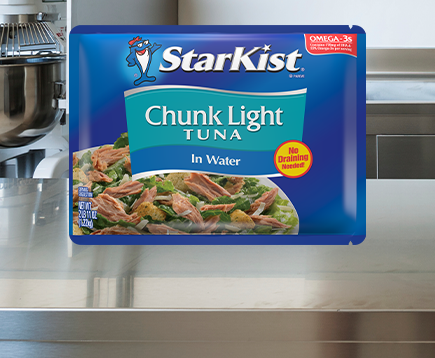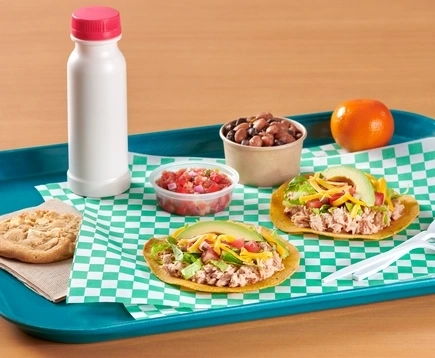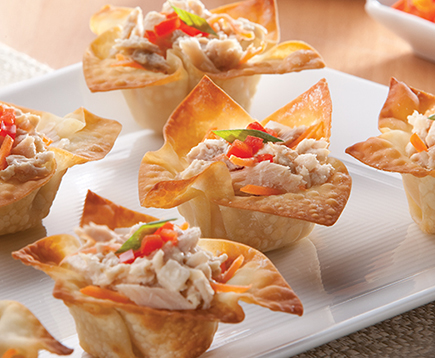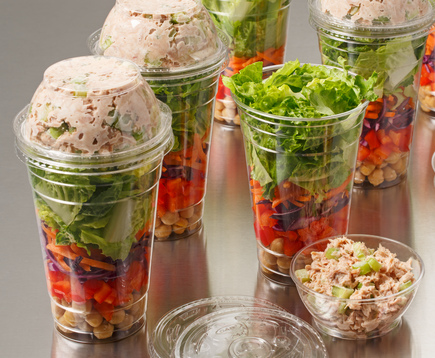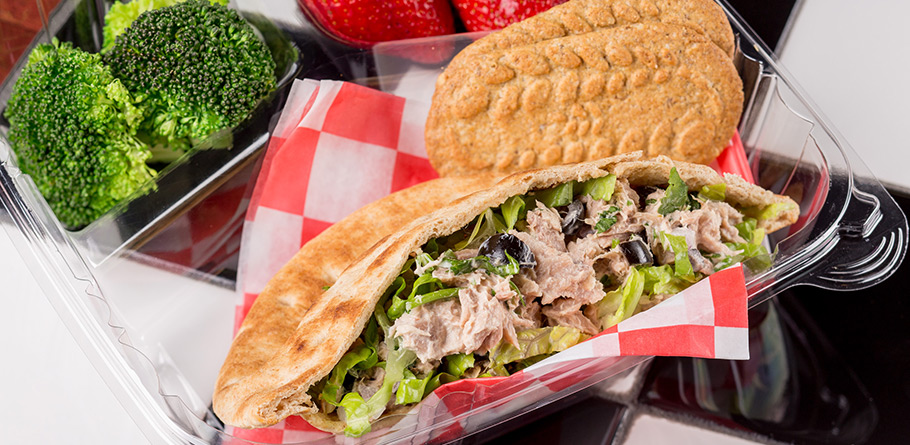
-
Prep Time:
-
Cook Time:
-
Ingredients:
- 10 Pita Pockets, whole grain
- 7 oz Lettuce, romaine, EP
- 8 oz Tomatoes, fresh, EP
- 3 oz Onion, red, raw, EP
- 1/2 cup Parsley, fresh, EP
- 1/2 cup Greek yogurt, plain
- 1/2 cup Lemon juice
- 1/2 cup Mayonnaise
- 1 tsp Garlic, granulated
- 1/2 tsp Pepper, black
- 1 StarKist® Chunk Light Tuna in Water, low sodium, 43 oz pouch
- 1/2 cup Black olives, sliced
- 10 oz Mozzarella cheese, shredded
Directions:
- Thaw pita pocket at room temperature overnight. Proper thawing will aid in handling the product without breaking and cracking.
- Shred lettuce. Cut romaine head in half lengthwise through root end of lettuce. Rinse both halves thoroughly. Make 1 lengthwise cut leaving each root half intact, then cut across to make 1⁄4” strips. Rinse cut romaine under running water and drain well
- Weigh then rinse tomatoes and onions under running water. Drain well in a colander.
- Remove tomato core, and dice into ½” pieces. Dice onions into ½” pieces.
- Rinse parsley under running water and drain in a colander. Further dry parsley by rolling in a disposable paper towel.
- Cut away thick stems of parsley bunch, then finely chop.
- Combine Greek yogurt, lemon juice, mayonnaise, parsley, and garlic powder in a large bowl. Add undrained tuna and using fresh gloves, crumble into small pieces. Add tomatoes, red onions, black olives, and mozzarella cheese. Mix gently until all ingredi
- Cut pita rounds in half. To assemble pita, place ¼ cup romaine lettuce into pita pocket. Using a no. 8 disher, add 1/2 cup packed tuna mixture into center of pocket. Serve 1 pocket immediately. Avoid holding for long periods of time to prevent pita fro
| Amount Per Serving | DV%* | |
|---|---|---|
| Calories | 262 | |
| Total Fat | 8.32g | |
| Saturated Fat | 2.15g | |
| Trans Fat | 0g | |
| Polyunsaturated Fat | ||
| Monounsaturated Fat | ||
| Cholesterol | 29.94mg | |
| Sodium | 428.28mg | |
| Total Carbohydrate | 26.30g | |
| Dietary Fiber | 3.20g |
*The % Daily Value tells you how much a nutrient in a serving of food contributes to a daily diet. 2,000 calories a day is used for general nutrition advice.




